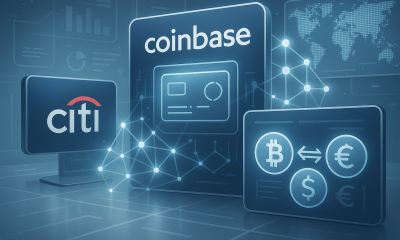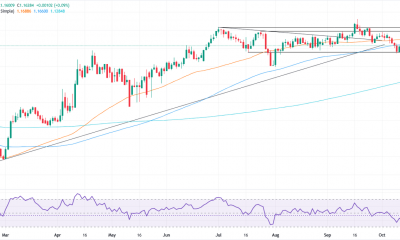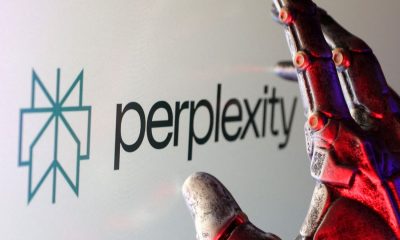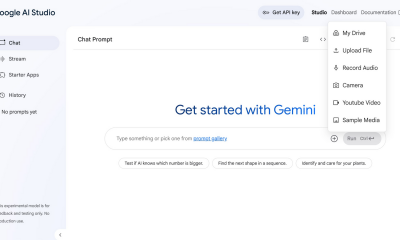

Metaverse
Indian companies lag in workforce upskilling amid AI disruption, job cuts – Crypto News
A new report by upskilling platform upGrad Enterprise, shared exclusively with Mint, reveals that only 50% of 12,000 respondents received any form of training at their workplaces in 2024-25. Only 16% said they undergo quarterly training.
“On one side, organisations are talking about investing in their people. But if one out of every two employees is unaware of any training opportunities, there’s clearly a gap. Access to skilling needs to be improved,” said Srikanth Iyengar, chief executive, upGrad Enterprise.
This comes as skill requirements are changing fast. Employers are prioritising talent skilled in AI over traditional coding roles, while jobs in project management, data analysis, and content marketing are seeing reduced demand, Mint reported earlier in May.
“The net effect is changing skill requirements, not necessarily fewer jobs,” said Hitesh Oberoi, CEO of Naukri.com, acknowledging that while some roles will be automated, new ones will emerge in a post on the social media platform X on 19 May.
“With the global shortage of AI specialists and India’s strong foundation in technical education, we can position ourselves as a global AI talent hub—if we evolve our skilling ecosystem quickly,” he said.
Too little, and it’s getting late
For now, the impact appears to be hitting the current workforce and job seekers alike. Many startups, focused on profitability or planning to go public, have slowed hiring as they determine how AI will affect their operations.
Major tech-driven firms like Zomato, Cars24, and Gupshup have laid off employees in recent months, Mint reported.
When it comes to training existing talent, 60% of companies surveyed by upGrad allocate less than 5% of their human resources (HR) budgets to upskilling. Moreover, 61.5% of chief human resources officers (CHROs) reported no measurable impact from training initiatives, according to the report.
“Enterprise upskilling in India remains underpenetrated because most firms treat it as a discretionary HR expense—already a cost centre,” Iyengar said. “But it’s as essential as payroll. Without the right people, a business isn’t scalable or sustainable.”
Experts say relying on firing employees and hiring pre-skilled talent rather than training existing staff is a short-sighted strategy.
“A hire-and-fire model undermines India’s long-term talent advantage. Unlike ageing Western economies, India’s edge lies in its youthful population. To preserve that edge, we need to invest in developing talent, not just replacing it,” said Jawahir Morarji, president-enterprise business at upskilling firm Emeritus.
A shortcut is certainly not the best route
The Economic Survey 2024-25 pegs India’s median age at 28. Layoffs and job replacements aimed at short-term cost-cutting could weaken this demographic advantage.
Moreover, bringing in new talent is expensive and time-consuming. “In high-speed sectors like information technology (IT) and fintech, new hires can take 3-6 months to become fully productive,” said Ritesh Malhotra, enterprise head at Great Learning. “As technology evolves rapidly, even ‘pre-skilled’ hires may require role-specific training after joining.”
The upGrad report also found that 75% of employees engage in learning only when it is mandated. At first glance, this may suggest a lack of interest from the workforce itself.
However, experts argue that employees often struggle to identify which specific skills they need to develop, leading to poor training outcomes and wasted resources. In many cases, programmes aren’t customised to suit the needs of different teams or roles.
For example, Gen X workers prefer expert-led sessions, Gen Y favours flexible yet structured formats, and Gen Z leans towards immersive, on-demand learning. Still, 63% of HR leaders do not tailor learning initiatives by generation, the survey showed.
Of the 12,000 employees surveyed, close to 40% were CHROs, management-level or C-suite executives.
HR leaders from 1000+ companies participated in the survey.
-

 Blockchain1 week ago
Blockchain1 week agoAfrica Countries Pass Crypto Laws to Attract Industry – Crypto News
-
Cryptocurrency1 week ago
XRP News: Ripple Unveils ‘Ripple Prime’ After Closing $1.25B Hidden Road Deal – Crypto News
-
others1 week ago
JPY soft and underperforming G10 in quiet trade – Scotiabank – Crypto News
-

 Blockchain1 week ago
Blockchain1 week agoXRP Price Gains Traction — Buyers Pile In Ahead Of Key Technical Breakout – Crypto News
-

 Blockchain1 week ago
Blockchain1 week agoISM Data Hints Bitcoin Cycle Could Last Longer Than Usual – Crypto News
-

 Cryptocurrency1 week ago
Cryptocurrency1 week agoWhat next for Avantis price after the 73% recovery? – Crypto News
-

 Technology1 week ago
Technology1 week agoNothing OS 4.0 Beta introduces pre-installed apps to Phone (3a) series: Co-founder Akis Evangelidis explains the update – Crypto News
-

 Technology5 days ago
Technology5 days agoSam Altman says OpenAI is developing a ‘legitimate AI researcher’ by 2028 that can discover new science on its own – Crypto News
-

 Cryptocurrency1 week ago
Cryptocurrency1 week agoTrump plans to pick Michael Selig to lead CFTC: Report – Crypto News
-

 Blockchain1 week ago
Blockchain1 week agoEthereum Rebounds From Bull Market Support: Can It Conquer The ‘Golden Pocket’ Next? – Crypto News
-

 De-fi1 week ago
De-fi1 week agoNearly Half of US Retail Crypto Holders Haven’t Earned Yield: MoreMarkets – Crypto News
-

 Cryptocurrency1 week ago
Cryptocurrency1 week agoBitcoin’s institutional surge widens trillion-dollar gap with altcoins – Crypto News
-

 Technology1 week ago
Technology1 week agoUniswap Foundation (UNI) awards Brevis $9M grant to accelerate V4 adoption – Crypto News
-

 Blockchain1 week ago
Blockchain1 week agoBinance Stablecoin Outflow On A Steady Rise — What This Means For The Market – Crypto News
-
others1 week ago
Indian Court Declares XRP as Property in WazirX Hack Case – Crypto News
-

 Cryptocurrency1 week ago
Cryptocurrency1 week agoWestern Union eyes stablecoin rails in pursuit of a ‘super app’ vision – Crypto News
-

 Technology1 week ago
Technology1 week agoFrom Studio smoke to golden hour: How to create stunning AI portraits with Google Gemini – 16 viral prompts – Crypto News
-
Business1 week ago
PEPE Coin Price Prediction as Weekly Outflows Hit $17M – Is Rebound Ahead? – Crypto News
-

 Cryptocurrency1 week ago
Cryptocurrency1 week agoHYPE Breaks Out After Robinhood Listing and S-1 Filing: What’s Next? – Crypto News
-

 De-fi1 week ago
De-fi1 week agoHYPE Jumps 10% as Robinhood Announces Spot Listing – Crypto News
-
others1 week ago
Platinum price recovers from setback – Commerzbank – Crypto News
-
Business1 week ago
White House Crypto Czar Backs Michael Selig as ‘Excellent Choice’ To Lead CFTC – Crypto News
-
others1 week ago
Bitcoin Price Eyes $120K Ahead of FED’s 98.3% Likelihood to Cut Rates – Crypto News
-

 Technology1 week ago
Technology1 week agoMint Explainer | India’s draft AI rules and how they could affect creators, social media platforms – Crypto News
-
others1 week ago
GBP/USD holds steady after UK data, US inflation fuels rate cut bets – Crypto News
-

 Blockchain1 week ago
Blockchain1 week agoEntire Startup Lifecycle to Move Onchain – Crypto News
-

 Blockchain1 week ago
Blockchain1 week agoXRP/BTC Retests 6-Year Breakout Trendline, Analyst Calls For Decoupling – Crypto News
-

 Cryptocurrency1 week ago
Cryptocurrency1 week agoUSDJPY Forecast: The Dollar’s Winning Streak Why New Highs Could Be At Hand – Crypto News
-
others1 week ago
Is Changpeng “CZ” Zhao Returning To Binance? Probably Not – Crypto News
-

 Technology1 week ago
Technology1 week agoOpenAI announces major Sora update: Editing, trending cameos, and Android launch on the way – Crypto News
-

 Metaverse1 week ago
Metaverse1 week agoGemini in Gmail automates meeting schedules effortlessly – Crypto News
-

 Cryptocurrency1 week ago
Cryptocurrency1 week agoNEAR’s inflation reduction vote fails pass threshold, but it may still be implemented – Crypto News
-

 Technology1 week ago
Technology1 week agoSurvival instinct? New study says some leading AI models won’t let themselves be shut down – Crypto News
-

 others1 week ago
others1 week agoGBP/USD floats around 1.3320 as softer US CPI reinforces Fed cut bets – Crypto News
-

 Cryptocurrency6 days ago
Cryptocurrency6 days agoCitigroup and Coinbase partner to expand digital-asset payment capabilities – Crypto News
-

 Cryptocurrency6 days ago
Cryptocurrency6 days agoInside Bitwise’s milestone solana ETF launch – Crypto News
-
others1 week ago
Silver consolidates below $49 amid Fed rate-cut bets – Crypto News
-
Business1 week ago
HBAR Price Targets 50% Jump as Hedera Unleashes Massive Staking Move – Crypto News
-

 others1 week ago
others1 week agoEUR/USD hovers at 1.1600 as muted CPI data fails to alter Fed stance – Crypto News
-
Business1 week ago
Trump Picks SEC Crypto Counsel Michael Selig to Lead CFTC Amid Crypto Oversight Push – Crypto News
-

 Blockchain1 week ago
Blockchain1 week agoPump.Fun Rallies 10% After Acquisition Of Trading Terminal Padre – Crypto News
-
Technology1 week ago
Analyst Eyes Key Support Retest Before a Rebound for Ethereum Price Amid $93M ETF Outflows and BlackRock Dump – Crypto News
-
Business1 week ago
Ripple Explores New XRP Use Cases as Brad Garlinghouse Reaffirms Token’s ‘Central’ Role – Crypto News
-
others1 week ago
Tether’s Stablecoin 1.0 Era Is Over – Now the Industry Needs 2.0 – Crypto News
-

 De-fi1 week ago
De-fi1 week agoAave Labs Acquires Stable Finance to Expand DeFi Access – Crypto News
-

 Blockchain1 week ago
Blockchain1 week agoKyrgyzstan Launches Stablecoin While Confirming Future CBDC – Crypto News
-
others1 week ago
USD/JPY extends gains as strong US PMI offsets softer CPI data – Crypto News
-
Technology1 week ago
James Wynn Takes XRP Long Bet After Ripple Prime Announcement – Crypto News
-

 Cryptocurrency1 week ago
Cryptocurrency1 week agoCrypto wrap: Bitcoin, Ethereum, BNB, Solana, and XRP muted after CPI report – Crypto News
-

 Cryptocurrency1 week ago
Cryptocurrency1 week agoBitcoin Accumulation Patterns Show Late-Stage Cycle Maturity, Not Definite End: CryptoQuant – Crypto News


















